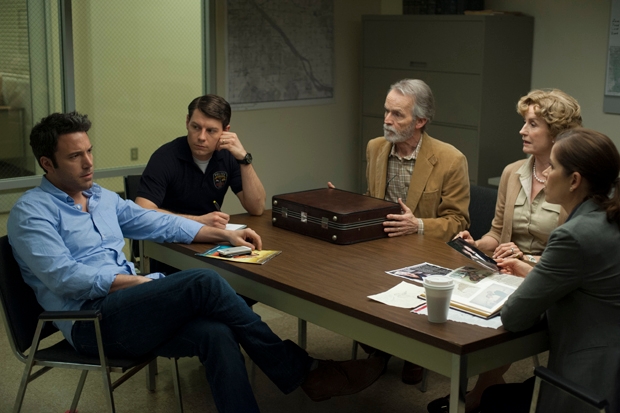Gone Girl is David Fincher’s adaptation of the bestselling thriller by Gillian Flynn, a relentless page-turner which I’ve heard people say they read ‘even though it’s not that good’ — you were hooked; get over it; don’t be snotty — and which I read, even though it’s not that good. The twists and turns are there, but all psychological heft is ultimately thrown out the window in a way you’d never, for example, find in a Patricia Highsmith. And this screen version fully exposes the limitations of the original material. In fact, the final act is so outlandishly absurd and ridiculous and trashy that Fincher plays it for laughs. Or at least I think he plays it for laughs. Actually, the worst scenario would be if he hadn’t played it for laughs. Then we’d really be in trouble.
With a script by Flynn, this is the story of a married couple, Nick and Amy Dunne, as played by Ben Affleck and Rosamund Pike. I am fond of Affleck. He is one of those actors who is always a better actor than you thought he was. This may have something to do with that all-American jaw, which says one thing, whereas his performances are significantly more subtle than such a jaw might suggest, so I find I’m always nicely surprised. Pike, meanwhile, is as coolly aloof as ever, with that cold look in her eye, but as the role demands cool aloofness, and a cold look in the eye, she may be superbly cast.

The first half of Gone Girl is the better half, by virtue of being the credible half. It opens with Nick returning home from an early morning bourbon — always a sign life isn’t going well; an early morning bourbon — to discover a smashed, upturned glass coffee table and that his wife has disappeared.








Comments
Join the debate for just £1 a month
Be part of the conversation with other Spectator readers by getting your first three months for £3.
UNLOCK ACCESS Just £1 a monthAlready a subscriber? Log in